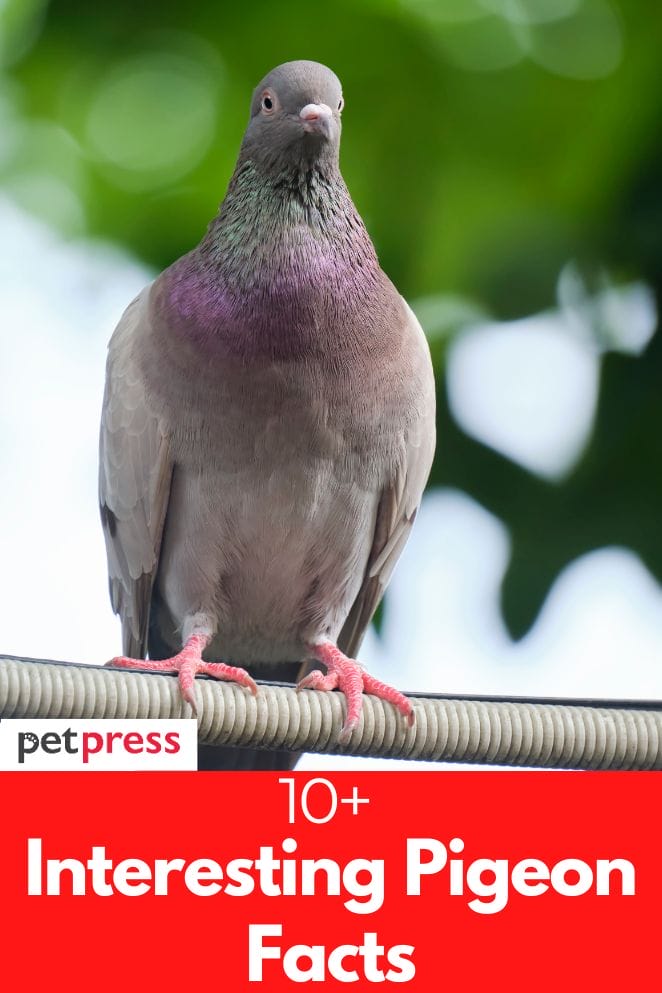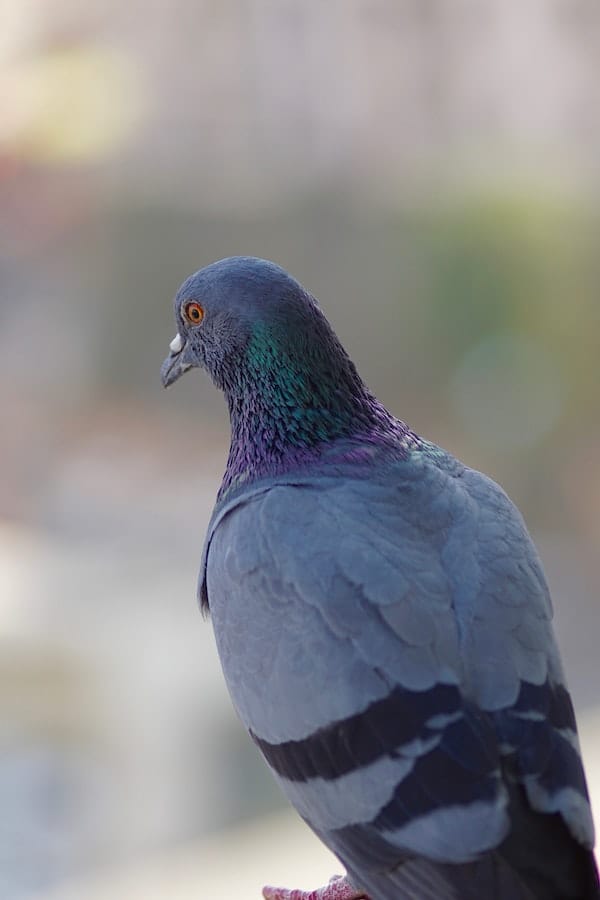
Pigeons have been part of human history for many centuries.
They were once used as messengers in wartime, and they are still relied upon by breeders and fanciers today.
Pigeons are often overlooked in the animal kingdom, but they are fascinating birds with unique abilities and behaviors.
This article will explore some interesting facts about pigeons you may not have known. Read on to learn more!
Fact #1: Pigeons can recognize individual people.
If you’ve ever seen a pigeon in a city park, there’s a good chance it has noticed you.
Pigeons can recognize individual people and remember them over time.
Scientists have found that pigeons can distinguish between human faces, even when the face is upside down or partially obscured.
They are also capable of distinguishing between male and female humans.
This remarkable ability is thought to be linked to their homing instincts, which allow them to return home after long journeys.
Fact #2: Pigeons can find their way home from hundreds of miles away.
Pigeons are well known for their incredible homing instincts.
They have been used in many different cultures as messengers, carrying messages from one place to another.
The birds can be released hundreds of miles away and will still find their way back home – sometimes even faster than humans!
Scientists aren’t quite sure how the birds do it, but it’s thought to be related to their ability to recognize landmarks and use the sun, stars, and Earth’s magnetic field as navigational tools.
This amazing skill has been used in scientific studies of bird navigation for many years.
Fact #3: Pigeons can remember hundreds of different objects.

Pigeons have impressive memories and can recall hundreds of different objects.
In fact, in one study, pigeons could identify over 1,800 visually distinct shapes!
They are also capable of recognizing patterns, colors, and other visual cues.
This remarkable ability is the reason why pigeons have been used in experiments to study memory and learning.
Fact #4: Pigeons are social animals.
Pigeons may be seen as solitary creatures in cities, but they actually form complex social networks with other birds.
They often form large groups, known as “lofts”, that can include dozens or even hundreds of other pigeons.
These social networks are essential for finding food and shelter, as well as avoiding predators and passing on information about their environment. Pigeons also have recognizable courtship rituals and will often mate for life.
Fact #5: Pigeons can fly at incredible speeds.
Pigeons are incredibly fast flyers and can reach speeds of up to 80 miles per hour!
To achieve these impressive speeds, pigeons rely on a combination of rapid wing flaps and powerful tails fanned out behind them.
This allows the birds to maneuver quickly and make tight turns while in flight. These skills come in handy when they are trying to avoid predators or find food sources.
Fact #6: Pigeons can be trained to perform complex tasks.
Pigeons are capable of more than just flying and finding their way home – they can also be trained to complete complex tasks!
For example, some breeds have been taught to distinguish between different colors, shapes, and numbers.
Researchers have also trained pigeons to recognize certain patterns or objects in images, which has been used for the early detection of diseases like cancer.
Pigeons can even be trained to play simple video games! This demonstrates their remarkable intelligence and capacity for learning.
- Related post: How To Name Your Pet Pigeon
- Related post: Funny Pigeon Names That Are Unique
Fact #7: Pigeons are an important part of many cultures.

Pigeons have been valued by humans since ancient times, and they continue to play an important role in many different cultures around the world.
In some places, they are seen as symbols of luck and prosperity, while in others, they are used for religious ceremonies or competitive racing.
In some regions, pigeons are even part of daily life – from feeding them at parks to using them as messengers.
Regardless of culture or beliefs, one thing is certain: pigeons have been and will continue to be an integral part of human society.
Fact #8: Pigeons are susceptible to certain diseases.
Unfortunately, pigeons are susceptible to various diseases, including avian flu, salmonella, and psittacosis.
These illnesses can be spread through contact with infected birds or their excrement, as well as through contaminated food or water.
It is important to take measures to prevent the spread of these diseases, such as avoiding contact with sick birds and practicing good hygiene when handling pigeons or their food.
Vaccines are also available for some illnesses, so it is important to consult with a veterinarian if you suspect your pigeon may be ill.
Fact #9: Pigeons are surprisingly noisy.
Pigeons may appear to be quiet and docile, but they can actually make a surprising amount of noise!
From the familiar cooing sound to the loud cries when alarmed, pigeons have several vocalizations that are used for communication.
In addition to this, they can also make loud flapping noises with their wings when in flight or when showing aggression towards other birds.
So, the next time you see a pigeon, take a moment to listen – you might be surprised at what you hear!
Fact #10: Pigeons are found all over the world.
Pigeons can be found in every continent around the world, from Europe to Africa to North and South America.
Their ability to adapt to different climates and environments has allowed them to thrive in almost any location, from urban city centers to remote rural villages.
Thanks to this wide distribution, pigeons have become a universal symbol of peace and friendship.
No matter where you are or what language you speak, these birds can bring us all closer together.
Fact #11: Pigeons have been used for military purposes.

Throughout history, pigeons have played an important role in military operations.
During World War I and World War II, they were used to deliver vital messages from the battlefield to those at home.
The birds were often sent in special boxes with a small camera attached, allowing photos to be taken of the battlefield as they flew.
This allowed commanders to assess their situation and communicate orders quickly and accurately.
Using these feathered messengers saved many lives during both wars and continues to be an important part of modern warfare today.
Fact #12: Pigeons can live between 5-15 years.
Pigeons are surprisingly long-lived birds, with the average lifespan of a healthy pigeon ranging from five to fifteen years.
This is quite impressive when compared to many other species of bird, which often have much shorter lifespans.
While the exact age of a pigeon can be difficult to determine due to its wide variation in size and color, it is possible to estimate an approximate age by looking at its feathers and plumage.
With proper care and nutrition, pigeons can make wonderful companions for many years!
Overall, pigeons are fascinating birds with a long and varied history.
From being used as messengers in war to bringing us closer together through their universal symbol of peace, these feathered friends have earned the respect and admiration of people around the world.
They will continue to play an important role in our lives for many years to come.
- Does Cat Litter Melt Ice? The Complete Guide to Winter Safety - January 30, 2026
- Happy Tail Dogs: Understanding This Common Canine Condition - January 29, 2026
- How Cold Can Outdoor Cats Handle? Feline Winter Safety - January 27, 2026


GIPHY App Key not set. Please check settings